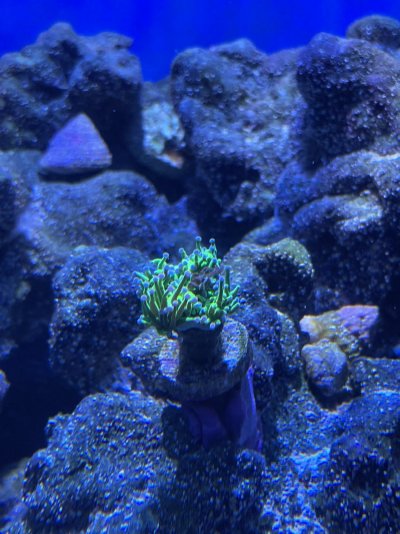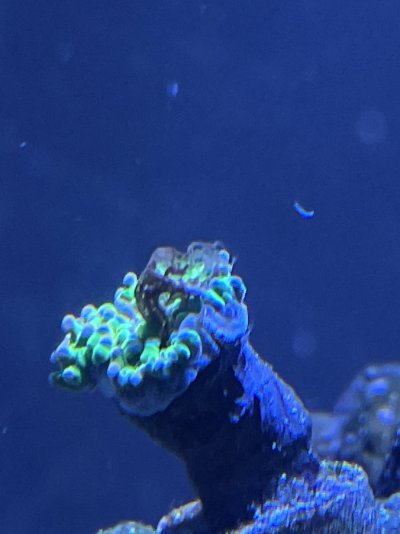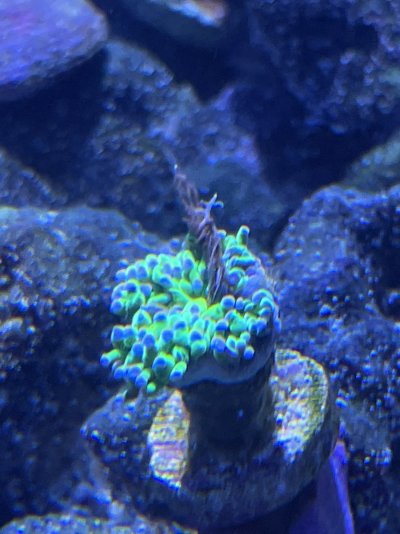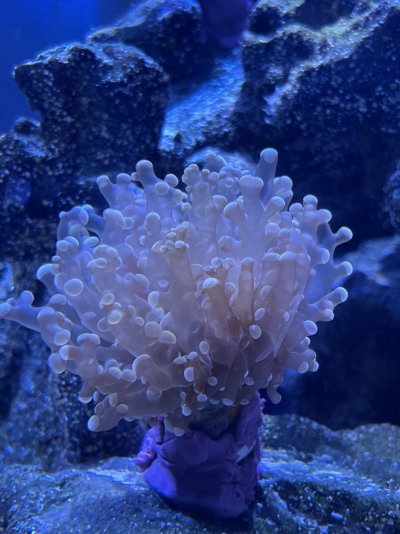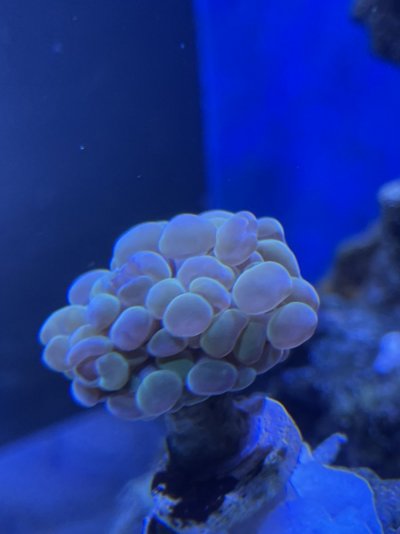Navigation
Install the app
How to install the app on iOS
Follow along with the video below to see how to install our site as a web app on your home screen.
Note: This feature may not be available in some browsers.
More options
You are using an out of date browser. It may not display this or other websites correctly.
You should upgrade or use an alternative browser.
You should upgrade or use an alternative browser.
Brown jelly on torch?
- Thread starter Andresnyc93
- Start date
- Tagged users None
Looks like poop. Maybe a little better pic.
Here’s my other euphyllia compared to the torchLooks like poop. Maybe a little better pic.
Attachments
Thank you!Poop, not BJD.
All other corals are thriving too so just wanted to make sure. I did just switch the intensity of my kessil so perhaps it’s adjusting to it stillMaybe a small expel of zoo, which is normal.
A “recalibration” on the recent change in light source.
If waters on point, not concerned,
Yup, a change in light. They all kinda hate that.All other corals are thriving too so just wanted to make sure. I did just switch the intensity of my kessil so perhaps it’s adjusting to it still
If everything is happy, stay the course.
vetteguy53081
Well known Member and monster tank lover
View Badges
Partner Member 2024
Excellence Award
Reef Tank 365
RGB
Article Contributor
Tampa Bay Reef Keepers
West Palm Beach Reefer
Hospitality Award
Ocala Reef Club Member
305 Reef Club
Wisco Reefers
Midwest Reefer
Fish Medic
MAC of SW Florida
Rock Pool Reef Keepers
R2R Secret Santa 2023
My Tank Thread
My Aquarium Showcase
Expelling zooxanthellae - not poop. It is doing this due to stress. This is likely a lighting or water flow issue.
Torch require typical parameters including:
Temperature around 78 degrees
Specific gravity of about 1.025
Ph of about 8.2
Calcium level of about 400 ppm.
Like most large polyp stony corals, a torch coral benefits from moderate water flow. The polyps will remain retracted and under-inflated if the water current is too fast because the large flowing polyps are prone to rip and tear in high or ultra-high current environments.
The torch coral is a photosynthetic coral, meaning it has a relationship with symbiotic zooxanthellae (single-cell photosynthetic organisms) that live inside its tissues that converts the light energy into sugar. In exchange for a home inside the coral, the zooxanthellae split their harvest and feed the coral. Therefore, it is possible to keep the Torch coral without any feeding at all. However, all corals are animals, and animals are meant to eat. Mysis shrimp is a good food.
The best placement for a torch coral is in a location that gets moderate water flow and moderate-intensity lighting.
Torch require typical parameters including:
Temperature around 78 degrees
Specific gravity of about 1.025
Ph of about 8.2
Calcium level of about 400 ppm.
Like most large polyp stony corals, a torch coral benefits from moderate water flow. The polyps will remain retracted and under-inflated if the water current is too fast because the large flowing polyps are prone to rip and tear in high or ultra-high current environments.
The torch coral is a photosynthetic coral, meaning it has a relationship with symbiotic zooxanthellae (single-cell photosynthetic organisms) that live inside its tissues that converts the light energy into sugar. In exchange for a home inside the coral, the zooxanthellae split their harvest and feed the coral. Therefore, it is possible to keep the Torch coral without any feeding at all. However, all corals are animals, and animals are meant to eat. Mysis shrimp is a good food.
The best placement for a torch coral is in a location that gets moderate water flow and moderate-intensity lighting.
I’ve been spot feeding benepets. Would that be enough? Or should I give them the occasional mysis?Expelling zooxanthellae - not poop. It is doing this due to stress. This is likely a lighting or water flow issue.
Torch require typical parameters including:
Temperature around 78 degrees
Specific gravity of about 1.025
Ph of about 8.2
Calcium level of about 400 ppm.
Like most large polyp stony corals, a torch coral benefits from moderate water flow. The polyps will remain retracted and under-inflated if the water current is too fast because the large flowing polyps are prone to rip and tear in high or ultra-high current environments.
The torch coral is a photosynthetic coral, meaning it has a relationship with symbiotic zooxanthellae (single-cell photosynthetic organisms) that live inside its tissues that converts the light energy into sugar. In exchange for a home inside the coral, the zooxanthellae split their harvest and feed the coral. Therefore, it is possible to keep the Torch coral without any feeding at all. However, all corals are animals, and animals are meant to eat. Mysis shrimp is a good food.
The best placement for a torch coral is in a location that gets moderate water flow and moderate-intensity lighting.
Ph is 8.1
temp stays around 78-79
salinity is 1.025
calcium I keep at 410-415
vetteguy53081
Well known Member and monster tank lover
View Badges
Partner Member 2024
Excellence Award
Reef Tank 365
RGB
Article Contributor
Tampa Bay Reef Keepers
West Palm Beach Reefer
Hospitality Award
Ocala Reef Club Member
305 Reef Club
Wisco Reefers
Midwest Reefer
Fish Medic
MAC of SW Florida
Rock Pool Reef Keepers
R2R Secret Santa 2023
My Tank Thread
My Aquarium Showcase
Mysis- benepets is a dry food and could constipate themI’ve been spot feeding benepets. Would that be enough? Or should I give them the occasional mysis?
Ph is 8.1
temp stays around 78-79
salinity is 1.025
calcium I keep at 410-415
Appreciate it, thanks!Mysis- benepets is a dry food and could constipate them
Similar threads
- Replies
- 1
- Views
- 254
- Replies
- 12
- Views
- 171



